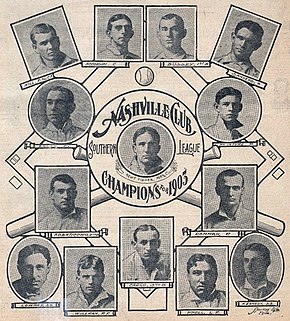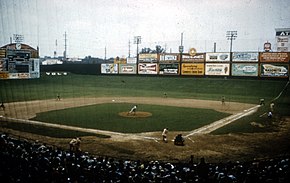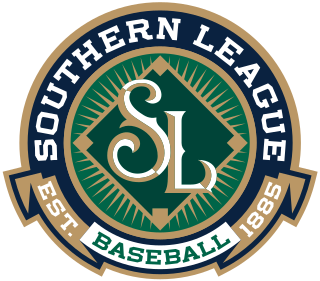
The Nashville Vols were a Minor League Baseball team that played in Nashville, Tennessee, from 1901 to 1963. They were established as charter members of the Southern Association (SA) in 1901. Known as the Nashville Baseball Club during their first seven seasons, they became the Nashville Volunteers (regularly shortened to Vols) in 1908. Nashville remained in the Southern Association until the circuit disbanded after the 1961 season. The team sat out the 1962 campaign but returned for a final season in the South Atlantic League (SAL) in 1963 before ceasing operations altogether. Over 62 seasons, the Vols played 9,015 regular-season games and compiled a win–loss record of 4,569–4,446 (.507). They qualified for postseason playoffs on 16 occasions in which they had a record of 108–74–1 (.593). Combining all 9,198 regular-season and postseason games, Nashville's all-time record was 4,677–4,520–1 (.509).
Contents
- History
- Southern Association (1901–1961)
- South Atlantic League (1963)
- Season-by-season records
- Split-season records
- Franchise totals
- By classification
- By league
- By affiliation
- Notes
- References
The Southern Association, of which the Volunteers were members for the entirety of its 61-season run, operated at the Class B (1901), Class A (1902–1935), Class A1 (1936–1945), and Double-A (1946–1961) levels of the minors. The South Atlantic League was at the Double-A level during Nashville's only year of membership. In 35 seasons, the Vols were not affiliated with any Major League Baseball team. Across 27 seasons, they served as a farm club for six major league franchises: the New York Giants (1934–1935, 1952–1954), Cincinnati Reds (1936–1937, 1955–1960), Brooklyn Dodgers (1938–1940), Chicago Cubs (1943–1951), Minnesota Twins (1961), and Los Angeles Angels (1963). The Vols typically owned the majority of their players, and these major league clubs furnished Nashville with additional players to round out the roster.
Throughout the Southern Association's existence, the team with the best regular-season record was recognized as the pennant winner. Nashville won eight SA pennants. In some seasons, the circuit utilized a split-season schedule wherein the winners from each half qualified for postseason championship playoffs. In others, the loop used the Shaughnessy playoff system in which the top four teams at the end of the season participated in a tournament to determine a champion. The Vols qualified for the playoffs on 16 occasions and won nine SA playoff championships. From 1920 to 1958, the league's champions met those of the Texas League in the Dixie Series to crown a champion of the Southland. Nashville played in seven Dixie Series, winning four. The South Atlantic League used a split-season format, but the Vols did not qualify in their only season as members.
The team's best season record occurred in 1940 when they finished 101–47 (.682) while having a working agreement with the Brooklyn Dodgers. Their lowest season record was 45–92 (.328) in 1906 as an unaffiliated club. Of the six Major League Baseball teams with which Nashville was affiliated, the Vols experienced their best record with the Dodgers from 1938 to 1940. They had a composite season record of 270–181 (.599) and reached the postseason in all three years, winning one pennant, two playoff championships, and one Dixie Series. Including a postseason mark of 25–16 (.610), their overall record was 295–197 (.600). Conversely, the team's lowest record was with the Los Angeles Angels in 1963. The Vols incurred a 53–86 (.381) record and did not reach the postseason during the partnership. Over the 35 seasons in which they had no major league affiliation, Nashville went 2,428–2,534 (.489) in the regular-season and won four pennants, two playoff titles, and two Dixie Series. Adding in a postseason record of a 22–7 (.759) in two appearances, Nashville was 2,450–2,541 (.491) as an unaffiliated team.













